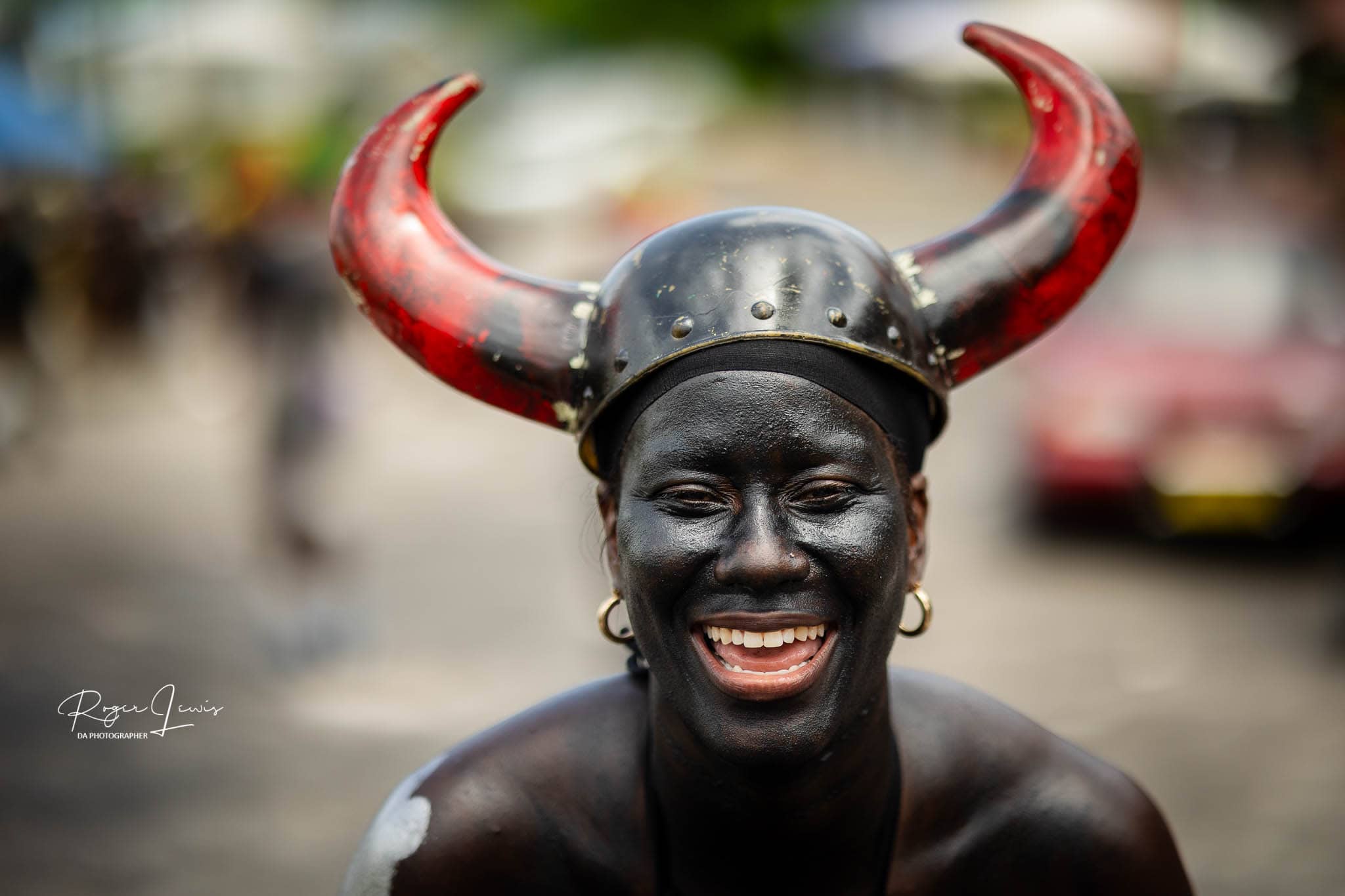
Grenada Jouvert 2023
At 4:30am I dropped out the small passenger bus seated 18 or 20 people instead of the 12 persons it was designed to seat. We had to “small Up” as the Grenadian conductor would say every time he squeezed in another passenger. “Oh, and the fees was raised on this Jouvert Morning from 2.50EC to 5.00EC which is not bad at all considering the demand for transport was up by more than 50%. As I walk into the dark streets they were packed with people of all races, shades, sizes, and ages, everyone seemed to be lost in the sounds of Soca type music or JabJab music blasting from speakers by the wooden temporary bars while wait for their jab band to appear out of the dark. Amber color streetlight lit streets as I then notice characters of all sorts. The dead bride, the silver people, the mud people, a big cock running back and forth, but mainly persons gathered sharing black oil and rubbing themselves in it, some even bathing from head to toe. Everyone would turn black no matter the shade of clothing or skin, this was a celebration of the JabJab, the freeing of the slaves, a Rebellon meant to scare the slave master, a reenactment of a past not forgotten. And then you hear the drums coming in the distance accompanied by the sound of chains dragging. The slaves had broken all chains and were finally free. Free to own the island, free to do as they wanted, free to put fear in masa. This is JAB, and this is how “we does be jabbing”. The Grenada Carnival a must for all Carnival Hunters. Rich in culture Spice Mas has a variety of options for all who cho0se this Caribbean festival that mainly celebrates the breaking away from slavery. This album is Jab Jab. This is Carnival in Grenada Jouvert 2023!
Here is a little history of Jouvert:
J’ouvert is a traditional festival that marks the unofficial start of Carnival in many Caribbean islands. It is derived from the French Creole term “jour ouvert”, meaning “daybreak” or “dawn”
The history of J’ouvert is linked to the history of slavery and emancipation in the Caribbean. It originated in Trinidad, where the French plantation owners brought Carnival to the island in the late 1700s. The enslaved people were banned from the masquerade balls of the French, so they created their own mini-carnivals in their backyards, using their own rituals and folklore, and also imitating and mocking their masters’ behavior
After slavery was abolished in 1838, the newly freed people took over the Carnival celebrations, and J’ouvert became a symbol of their resistance and liberation. They dressed up as various characters, such as the “Jab Jab”, a devil covered in oil or molasses, the “Fancy Indians”, the “Midnight Robber”, and others, that had roots in West African culture. They also smeared themselves with paint, mud, or oil to disguise themselves and avoid being recognized by the authorities.
J’ouvert is celebrated in the early morning hours, usually starting around 2 a.m. or 4 a.m., and continuing until mid-morning. The participants parade through the streets, dancing to the beat of calypso and soca music, and throwing paint, powder, oil, or mud at each other. J’ouvert is a time of joy, freedom, and expression, as well as a reminder of the struggles and achievements of the ancestors.
J’ouvert is also celebrated in other Caribbean islands, such as Grenada, where it is a major part of the Spice Mas festival. In Grenada, J’ouvert is known for its oil, paint, and chocolate, as the revelers cover themselves with different substances to create a colorful spectacle.